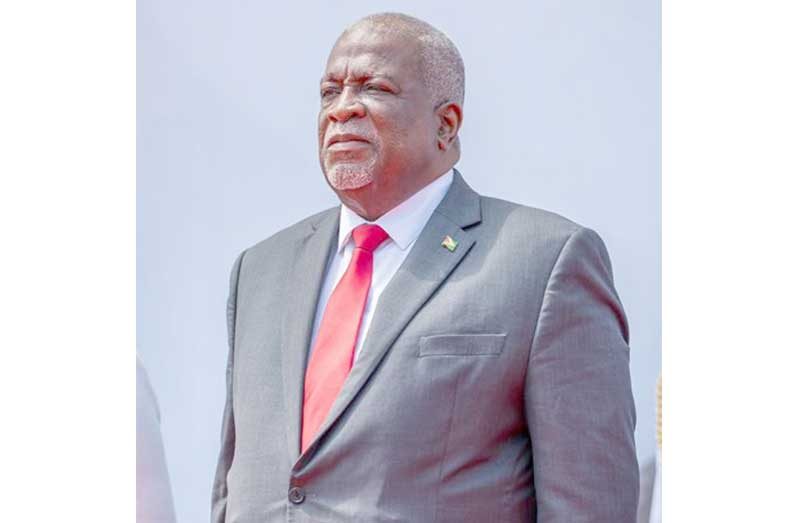– highlights government’s forward plans
PRIME Minister Brigadier (Ret’d) Mark Phillips has pointed to years of neglect by the Linden Mayor and Town Council (LM&TC) as the root cause of Sunday evening’s collapse of a section of the Wismar/Mackenzie Bridge, describing the incident as a “terrifying reminder” of the failures faced by residents of Linden.
“My thoughts and prayers are with those injured, and I extend best wishes for their full recovery,” the Prime Minister said in a statement.
However, he expressed concern over reports that Mayor Sharma Solomon had sought to shift blame onto the Government by linking the collapse to the removal of bridge tolls.
According to Phillips, the LM&TC has long held legal responsibility for the oversight and maintenance of the Wismar/Mackenzie Bridge under the Bridge Act. He noted that tolls were collected up until July 31, 2025, and therefore, funds were available for regular inspections, lighting, safety upgrades, and structural upkeep.
“The question is not whether funds were available, but whether they were used for their intended purpose,” Phillips stressed, suggesting that an independent audit of revenues collected between August 2020 and July 2025 would likely reveal “a pattern of negligence, poor prioritisation, and misuse of funds.”
The Prime Minister said the failure of the LM&TC to ensure safety and maintenance, despite having steady revenue, was “indefensible.”
By contrast, he noted that the Government has already acted proactively, allocating resources and commencing construction of a modern, permanent river crossing at Linden. The new structure, Phillips said, will not only replace the aging bridge but also improve safety, support commerce, facilitate tourism, and enhance transportation efficiency in Region 10.
“This forward-looking project is emblematic of a Government that places people’s well-being at the centre of development,” he affirmed.
The Wismar/Mackenzie Bridge, a key link across the Demerara River, has long been a lifeline for the people of Linden and surrounding communities. Its partial collapse has reignited debate over accountability and the urgency of infrastructure renewal in the region.



.jpg)








